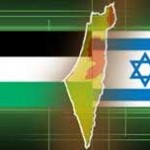Friday
Jan292010
Israel-Palestine: Way Forward Through "Low-Level Peace Talks"?
 Friday, January 29, 2010 at 8:44
Friday, January 29, 2010 at 8:44  Following Israeli Prime Minister Benjamin Netanyahu's statement on "new and interesting ideas", Reuters have quoted Palestinian officials that a US proposal to launch low-level peace talks, along with "confidence building measures" to improve living conditions in the West Bank, was handed over by US Mideast envoy George Mitchell on his recent visit to the region.
Following Israeli Prime Minister Benjamin Netanyahu's statement on "new and interesting ideas", Reuters have quoted Palestinian officials that a US proposal to launch low-level peace talks, along with "confidence building measures" to improve living conditions in the West Bank, was handed over by US Mideast envoy George Mitchell on his recent visit to the region.The response was mixed. "Holding a low-level meeting with the Israelis that tackles issues related to the daily life of Palestinians will not be an alternative to political negotiations," one Palestinian official was quoted as saying. In contrast, Israel's Defense Minister Ehud Barak painted a positive picture. He said that talks would resume in the next month or two and added, "On the surface the diplomatic process appears asleep and frozen, but I don't think that's really accurate. Under the surface both sides want negotiations."
Israel-Palestine: Obama to Netanyahu, Abbas “Deal With Your Opposition Within”
Israel: Defense Minister Barak “Palestine Peace Bigger Issue Than Iran’s Bomb”
Gaza: Israel Rejects Another High-Level Visit
Israel: Netanyahu’s “War on Evil”
After Israel's determination not to offer any concessions and the Palestinian Authority's insistence on those concessions before any negotiations, Washington's new proposal raises the question: Are low-level peace talks a complementary part or the collapse of the "tactical shift" put forward by the Secretary of State Hillary Clinton? Three weeks ago, Clinton declared, “Resolving borders resolves settlements, resolving Jerusalem resolves settlements. I think we need to lift our sights and instead of being looking down at the trees, we need to look at the forest.”




